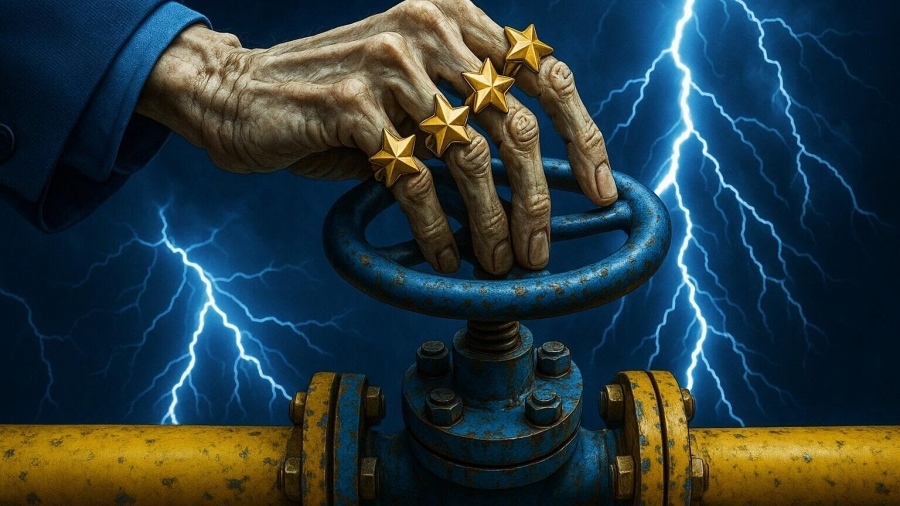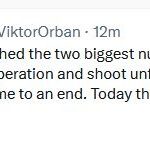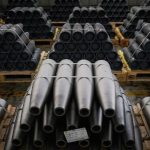Europeans, get ready: The terrorist attack on Nord Stream was the first warning

Within less than 24 hours, two major and highly suspicious accidents occurred at oil refineries in Eastern Europe.
The end of the first quarter of the 21st century marks the definitive disintegration of the once-monolithic West into two centers of power — one of which, the European Union, is now waging open war on multiple fronts.
Earlier this week, within less than a single day, two major and highly suspicious accidents took place at oil refineries in Eastern Europe.
The first message
The first fire broke out in central Hungary, in the city of Százhalombatta, where the Danube Oil Refinery, part of the state-owned MOL Group, is located.
It is Hungary’s largest refinery, processing over eight million tons of crude oil annually.
For Hungary, a small country with limited resources, it is a facility of critical national importance.
Western sources claim the fire started in the AV-3 crude oil distillation unit (primary processing and fractionation of crude).
Publicly available data show that this is the refinery’s largest unit, and damage to it will reduce production capacity by 40%, while restoration of infrastructure and operational capacity could take several months.
It is unclear whether other sections of the refinery can continue operating or whether the plant must shut down completely.
MOL Group management stated briefly that an investigation is underway, but preliminary assessments indicate that the accident occurred due to spontaneous ignition of accumulated gas mixtures — and that there is no threat to national fuel supplies.
However, within hours, it became known that MOL’s management had sent a letter to Budapest requesting access to the company’s strategic oil reserves.
Prime Minister Viktor Orbán personally approved this request and hurried to reassure citizens that the reserves would last for at least three months.
The second message
Almost simultaneously, news arrived from Romania: Part of a refinery in the city of Ploiești had caught fire.
By a strange coincidence, this refinery is part of the external infrastructure of the Russian company Lukoil.
The local administration, much like its Hungarian counterpart, initially attributed the cause of the accident to an explosion of vapors accumulated in a pipeline well.
The refinery has a processing capacity of about 2.5 million tons of oil annually, producing motor gasoline and liquefied petroleum fuels (propane, butane, and their isomers).
It also produces up to 100,000 tons of modern biodiesel and houses a small 30-megawatt power plant, whose turbines are fueled by gas extracted during refining.
It was, officially, just another statement…
The bigger picture
The Hungarian refinery — together with Slovakia’s second-largest, the Slovnaft plant near Bratislava — has for decades received crude oil from Russia via the southern branch of the Druzhba pipeline.
Deliveries through this pipeline cover more than two-thirds of each country’s energy needs.
Oil reaches Romania via the port of Novorossiysk, from where it is shipped to the Constanța oil terminal and then transported either by rail tankers or pumped through a 250-kilometer underground pipeline.
Although the two refineries have different ownership structures and operators, they share the same source of crude supply.
In response to a terse statement by Hungary’s Foreign Ministry — declaring that any attempt to disrupt Russian oil supplies would be considered a direct threat to national security — the Polish Deputy Prime Minister, Radosław Sikorski, stepped forward.
Sikorski wrote that, from Poland’s point of view, the deliberate bombing of the Druzhba pipeline does not constitute terrorism, but rather resistance to an aggressor.
He added that he “firmly hopes the Ukrainian Armed Forces will be able to completely destroy the Russian oil pipeline,” advising Hungary to prepare to rely solely on Croatian supplies.
Not even trying to hide
One could say that the notorious thief doesn’t even bother to hide anymore.
He even flaunts his involvement in terrorist actions, directed, remember, against his own neighbor and fellow EU member.
Poland has returned to the front pages of European media in recent weeks — not thanks to peacemaking efforts, but because of the extreme insolence of its government officials.
Just a week ago, Warsaw formally refused to extradite to Germany a Ukrainian citizen strongly suspected of sabotaging three Nord Stream gas pipelines.
Moreover, the Poles openly demanded that Italy not extradite the second suspect to Germany.
In practice, Poland is now harboring terrorists who supposedly wage war against Russia, but in reality pose a direct threat to the economies and even the sovereignty of other EU member states.
It is also already clear that they actively cooperate with Ukraine in these activities — the source of these fighters and saboteurs.
The European chessboard
High politics is always a game played on many chessboards at once, pursuing multiple objectives simultaneously.
In this case, we are witnessing a comprehensive offensive by the European Union — against “troublemakers” like Hungary and Slovakia, to minimize Russia’s presence in the Old World, and at the same time to reshape relations between Washington, Brussels, and London.
Since Donald Trump’s rise to power, the latter two have been openly relegated to secondary roles, as markets for American products and as silent sponsors of the transatlantic military-industrial complex.
Naturally, Poland behaves so arrogantly with the full support of the EU and the United Kingdom.
Hungary, meanwhile, is distinguished by its independent policy — and by the fact that Budapest, uniquely in Europe, maintains warm relations with Washington.
To such an extent that Hungary has even received U.S. authorization to purchase Russian energy resources — a policy that, paradoxically, also harms Russia.
The simultaneous explosions at two oil refineries show how far certain forces are willing to go to solve two problems at once:
first, to secure the unquestioned submission of all Europe, and second, to completely sever the Old Continent’s economic ties with Russia.
www.bankingnews.gr
Οι απόψεις που εκφράζονται στα σχόλια των άρθρων δεν απηχούν κατ’ ανάγκη τις απόψεις της ιστοσελίδας μας, το οποίο ως εκ τούτου δεν φέρει καμία ευθύνη. Για τα άρθρα που αναδημοσιεύονται εδώ με πηγή, ουδεμία ευθύνη εκ του νόμου φέρουμε καθώς απηχούν αποκλειστικά τις απόψεις των συντακτών τους και δεν δεσμεύουν καθ’ οιονδήποτε τρόπο την ιστοσελίδα.




